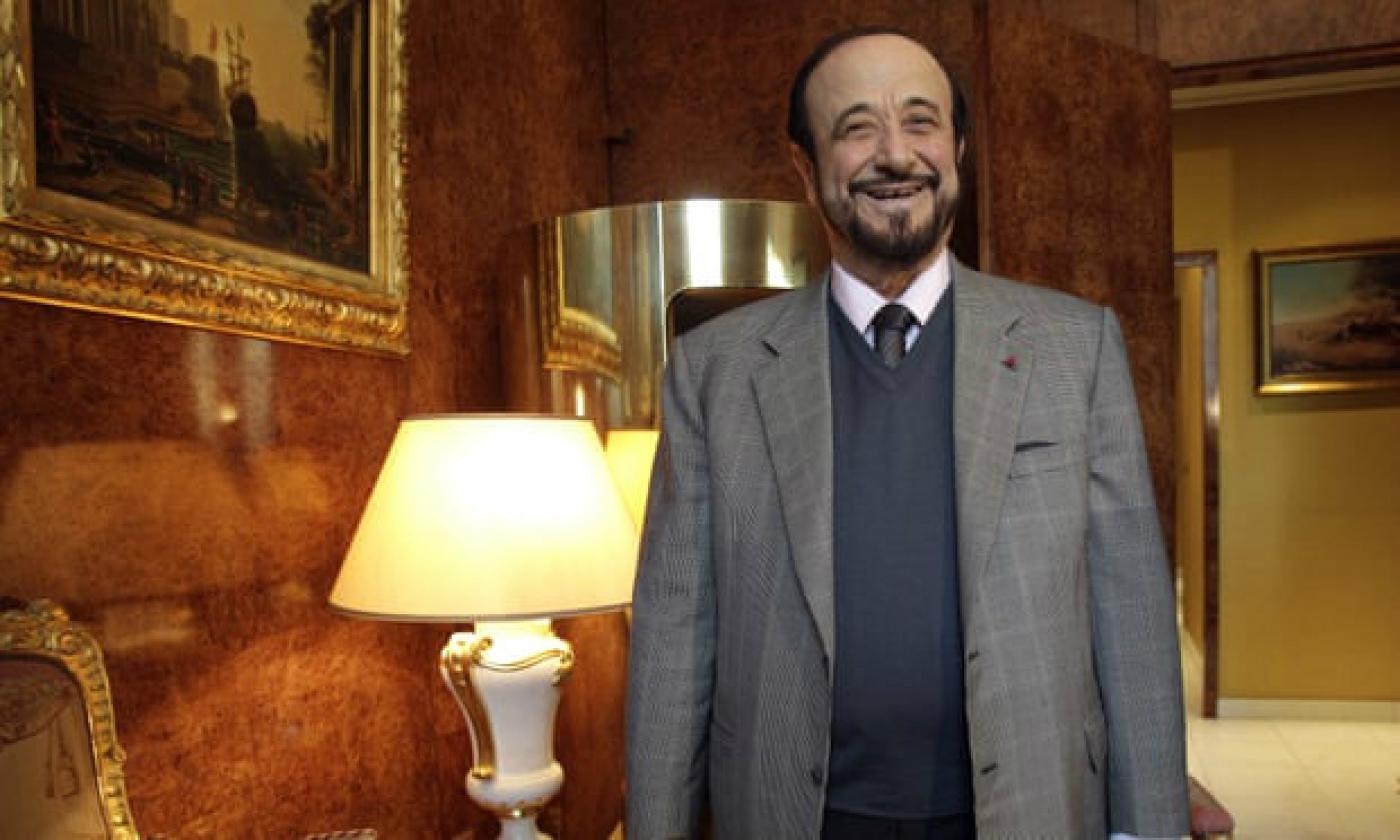Rifaat al-Assad corruption trial: French court finds Syrian leader's uncle guilty

A French court has found Rifaat al-Assad, the uncle of Syrian President Bashar al-Assad, guilty on money laundering charges and sentenced him to four years in prison.
The high court in Paris also ordered the confiscation of property assets in France valued at 90 million euros ($101m) and property in the UK valued at 29m euros ($32.6m).
Assad, 82, was not in court to hear the verdict which followed hearings in December and a near-seven-year investigation by financial prosecutors into the provenance of his wealth.
He was accused of money laundering over the suspected misappropriation of Syrian state funds and suspected tax evasion, as well as of employing undocumented workers.
Assad's lawyers said that his wealth was "perfectly legal" and that much of it derived from financial support and property given to him by King Abdullah of Saudi Arabia over decades since he was forced to leave Syria in 1984 after being accused of organising a coup plot against his older brother.
They produced details of financial transactions totalling tens of millions of dollars, as well as statements from a widow of King Abdullah and a former head of French intelligence in an effort to demonstrate the extent of Saudi support Assad had received.
Lawyers for Assad said that he would be appealing the verdict.
"It's an extremely harsh decision that seems unjustified," Benjamin Grundler told reporters. "There are no funds of Syrian origin in this case. All funds are legitimate."
Assad was also ordered to pay 30,000 euros ($33,700) to Sherpa, an anti-corruption organisation which originally brought the legal complaint against him in 2013.
'Ill-gotten gains'
In a statement issued jointly with another organisation, Transparency International France, Sherpa called on the French government to speed up the passage of a law allowing for the restitution of assets deemed to have been misappropriated to their countries of origin.
It linked the case to other recent convictions and ongoing cases targeting so-called "ill-gotten gains" held by foreign plutocrats and dignitaries in France, including the recent conviction upheld on appeal of Teodorin Obiang, the son of the president of Equatorial Guinea.
"This decision is of particular importance in the current Syrian context and underscores the urgency of establishing a French legal framework for the restitution of looted assets," the statement said.
"A specific law is all the more urgent since the successive convictions in cases of ill-gotten property bring us closer to the ultimate goal of the NGOs involved in these legal proceedings: the restitution of assets to the populations whose property was looted."
Sherpa also called for Assad to be stripped of the Legion d'honneur, France's highest honour, which was awarded to him by President Francois Mitterrand in 1986.
Vincent Brengarth, Sherpa's lawyer, told reporters: "This ruling shows that nobody escapes justice and there is no impunity."
Prosecutors' main witness against Assad was Abdul Halim Khaddam, Hafez al-Assad's former foreign minister and vice-president who joined Syrian opposition factions in 2011 and who died in March.
Khaddam alleged that Rifaat al-Assad had received $300m in state funds as part of a secret deal agreed with his brother to leave the country, involving $200m siphoned from the presidential budget and a further $100m donated to Syria by Libya.
Defence lawyers argued that the case had been "instrumentalised" by factions within the Syrian opposition in order to undermine Assad as he was becoming involved in discussions surrounding the creation of a transitional government to succeed his nephew in Damascus as part of efforts to end Syria's civil war.
They argued that Khaddam's testimony could not be relied on because he was a known opponent of Assad, and because of apparent discrepancies in his testimony and a lack of evidence proving the allegation of misappropriation of funds.
Another Hafez al-Assad era official, long-time defence minister Mustafa Tlass, had also accused Rifaat al-Assad and members of his Defence Brigades militia force of breaking into the central bank in Damascus and stealing money by force. Investigators said they had discounted Tlass's testimony as a "hypothesis".
Prosecutors also cited information provided by a Swiss bank which said Assad had opened an account in 1984 into which he had received large sums directly from Syria's central bank. According to the judgment, he had used the account to pay for five villas in Geneva over several years after arriving there with an entourage of about 200 people.
The judgment said that an analysis of banking documents invalidated Assad's "evolving and contradictory explanations" as to how he had acquired his wealth.
"These concordant elements confirm the existence of embezzlement at the expense of the Syrian state and for the exclusive benefit of Rifaat Al-Assad," it said.
Assad's Defence Brigades have been accused by human rights organisations of involvement in war crimes and rights abuses, including during the suppression of a Muslim Brotherhood-led uprising in Hama in 1982 in which thousands are estimated to have been killed. Assad has denied any involvement in the massacre.
The case may have consequences for Assad in Spain, where he is also under investigation for alleged money laundering and where the high court has frozen property and land assets with an estimated value, according to investigators, of up to 600m euros following a request from French prosecutors.
Middle East Eye delivers independent and unrivalled coverage and analysis of the Middle East, North Africa and beyond. To learn more about republishing this content and the associated fees, please fill out this form. More about MEE can be found here.





